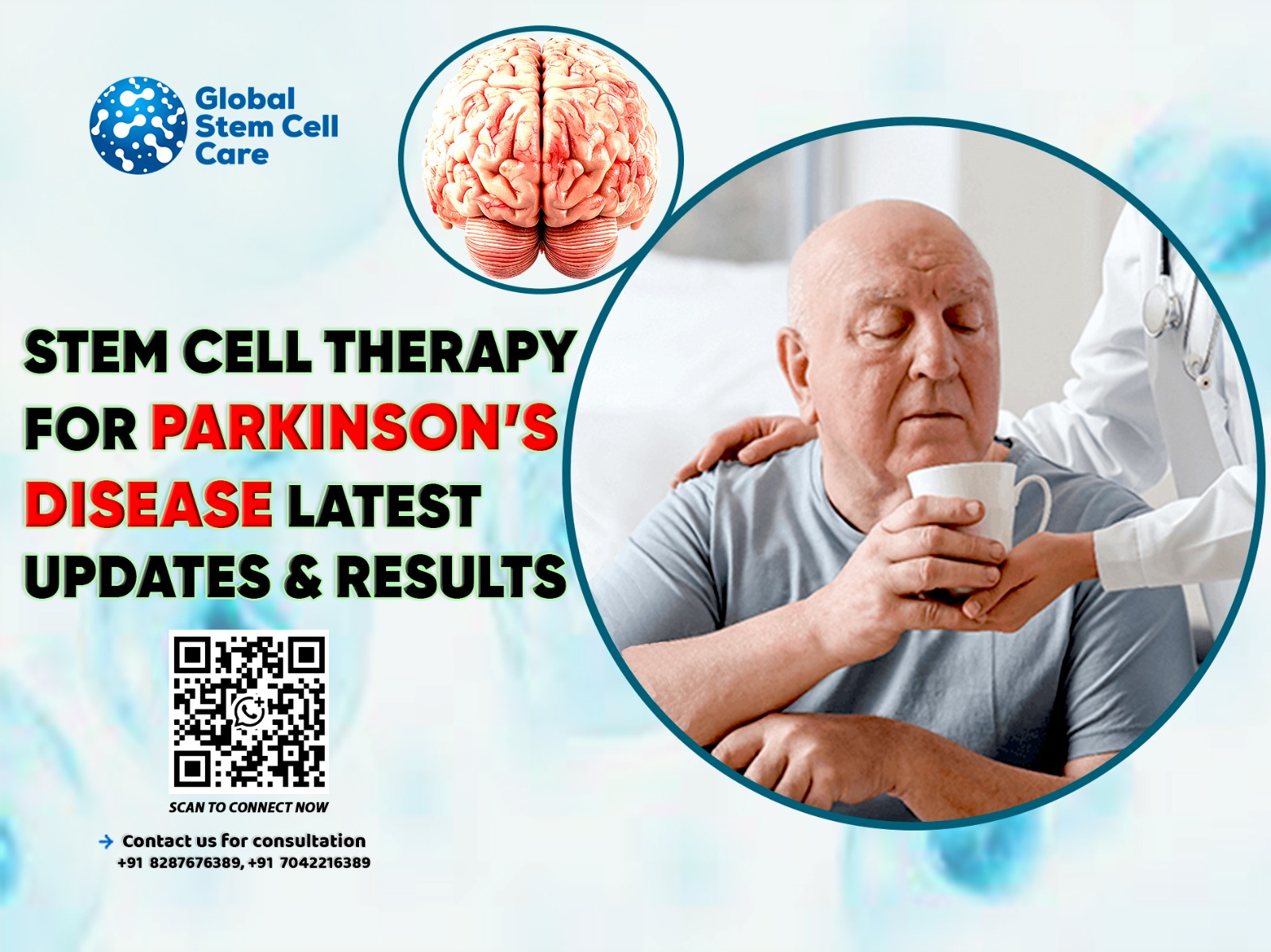Table of Contents
Did you ever think that if the treatment of parkinson disease could lie in the body’s own repair system? As you know, parkinson disease is a progressive neurodegenerative condition that mainly affects a person’s daily life movements. For years, researchers and doctors have been researching a way to slow down or even reverse this neurological condition.
Fortunately, due to excellent advancements in the field of medical science, stem cell therapy has come forth as a potential alternative and more advanced treatment for Parkinson’s disorder. Giving thousands of patients the ray of hope they needed by providing promising results that traditional treatment has not been able to provide. Let’s explore how and learn more about the latest updates and results on the research. Keep reading.
What Is Parkinson’s Disorder?
Parkinson’s disease is a progressive neurological condition that affects the nervous system, restricting the patient’s daily movements and worsening over time. It is often characterized by the deficiency of dopamine, a brain chemical, which occurs due to the degeneration of nerve cells.
How Can Stem Cells Help in Treating Parkinson’s Disease?
As you know, parkinson’s disorder happens when the nerve cells in the brain that are responsible for dopamine in the brain start to die. Due to this, patients may feel symptoms like tremors, stiffness, slowness in movement, and difficulty maintaining balance. Although medication can slow down the symptoms, but does not treat the root cause.
On the other hand, stem cells have the unique ability to transform into different types of cells in the body. In the case of Parkinson’s disease, researchers are working on turning stem cells into nerve cells that produce dopamine in the brain. Once injected, these cells have the power to regenerate and replace the damaged cells and tissue in the damaged area, hence restoring functions and quality of life for the patient.
Types of Stem Cells Used in Treating Parkinson’s Disease
There are different types of stem cells that scientists are researching to see which stem cell type is right for Parkinson’s:
- Mesenchymal Stem Cells: They exist in tissues like fat and bone marrow, and they may reduce inflammation and stimulate repair in the brain.
- Umbilical Cord Stem Cells: These stem cells are harvested after delivery. Purposeful stem cell use after birth is an ethical plus, and umbilical cords are a small and natural treasure of youthful and flexible stem cells.
- iPSC (Induced Pluripotent Stem Cells): Adult cells that have been reprogrammed to behave like embryonic stem cells. They can be trained to be dopamine neurons that are exactly specified for a patient.
- Bone Marrow Derived Stem Cells: Taken from the patient or donor, and potentially help repair the brain and support nerve function.
Recent Advances in Stem Cell Therapy for Parkinson’s
The research front is moving very fast. Some of the most promising advances follow:
- Clinical trials in many parts of the globe are investigating stem cell transplants in patients, and initial data show improved motor function.
- PSC technology is gaining momentum since it allows patient-specific therapy and reduces the chance of rejection.
- Stem cells from the umbilical cord are being tested for safety and compatibility in the integration of current brain tissue.
- Mesenchymal stem cells are showing high potential in the reduction of inflammation, which is linked with the progression of Parkinson’s.
Benefits of Stem Cell Therapy for Parkinson’s
Though still in research, patients and experts envision some potential benefits to this therapy:
- Ability to replace lost dopamine-producing neurons
- Enhancement of motor function and decrease of tremors
- Less reliance on medications
- Fewer long-term side effects than traditional treatment
- Potential to slow the disease instead of merely treating its symptoms
Things to Keep in Mind Before Choosing Stem Cell Therapy
Stem cell therapy is an encouraging but still emerging treatment. It is worthy of note:
- Outcomes can vary among individuals
- Not all centers providing stem cell therapy are supported by clinical trials
- The therapy always needs to be performed under close medical supervision
- There needs to be more large-scale research to establish long-term benefits
For Expert Advice: Global Stem Cell Care
If you are considering stem cell therapy for Parkinson’s or any other disease, it must be done by engaging professionals who know the science and also the patient’s path.
Global Stem Cell Care is a well-established consultancy that helps patients acquire safe, personalized stem cell therapies. They offer you quality healthcare, coordinate medical travel services, and make sure you are advised according to your case. If you are searching for treatment for neurological conditions or even more versatile conditions like bone marrow cancer, they provide useful information along the way.
Putting It All Together
The effect of Parkinson’s disease is experienced not only by the patients but also by their families. Conventional treatment has always been symptomatic in its approach. But all that may be set to change. Stem cells offer a real hope to repair the damage and restore much of the quality of life.
While more work has to be done, so far in this field, the results are encouraging. If this is maintained, stem cell treatment will be revolutionary for treating Parkinson’s—making it something that will be treated not as a life-long condition, but with cure potential.
